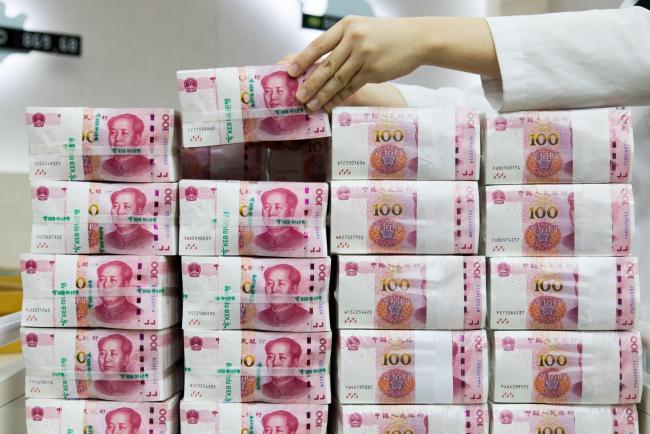(Bloomberg) -- China’s cabinet signaled that the central bank will act to make more liquidity available to banks so they can lend more, including by cutting the amount of money they have to keep in reserve.
China will reduce the reserve requirement ratio and use its relending policy to keep liquidity ample, state television reported Wednesday, citing a State Council meeting chaired by Premier Li Keqiang. The council, which is China’s cabinet, also urged financial institutions to support companies by sacrificing 1.5 trillion yuan ($212 billion) in profits this year by offering lower lending rates, deferring loan repayments and cutting fees.
China Wants Banks to Cap Their Profit Gains to Single Digits
The People’s Bank of China is trying to bring down borrowing costs across the economy to aid the recovery from the coronavirus slump in the first quarter, without engaging in large-scale debt stimulus seen elsewhere. That stance has however contributed to rising bond yields and concerns that market and monetary conditions are tightening.
“An RRR cut is likely to come shortly, perhaps even this weekend,” according to Lu Ting, chief China economist at Nomura Holdings (NYSE:NMR) Inc. in Hong Kong. “The policy strategy to squeeze banks might be positive for markets and economy first, but could backfire later if non-performing loans rise too fast and the government has to come to rescue banks on a large scale.”
The government “will continue to guide lending and bond interest rates down, give out loans with preferential interest rates, defer payment of principal and interest on loans to medium-sized, small and micro enterprises, support the issuance of unsecured loans for SMEs, and reduce bank charges,” according to the CCTV statement.
The reserve ratio currently stands at 11% for large banks, with lower requirements for smaller lenders.
PBOC Governor Yi Gang, China Securities Regulatory Commission Chairman Yi Huiman and China Banking and Insurance Regulatory Commission Chairman Guo Shuqing will speak Thursday morning at the annual Lujiazui Forum in Shanghai, according to the forum’s website.
(Updates with PBOC governor speaking on Thursday in sixth paragraph, economist’s comment. The day the state council met was corrected in an earlier version of this story.)
©2020 Bloomberg L.P.

